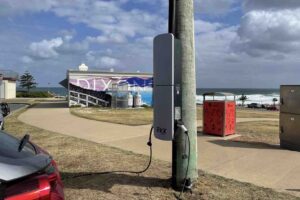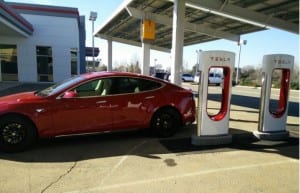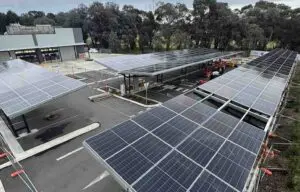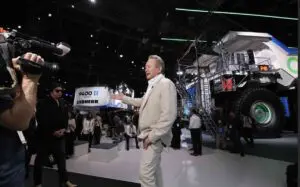Energy experts are calling for a series of zero emissions targets for transport in Australia, and a greater push for public transport, saying the sector is suffering from a lack of national policy direction.
The group of 18 Australian experts have combined to publish a Framework for an Australian Clean Transport Strategy (FACTS), outlining the next steps needed to urgently address Australia’s transport policy black hole.
“There is limited time to achieve significant emission reductions,” the report says.
“Australia must set a clear vision for rapid transport sector decarbonisation and invest in the development of transformative technologies that will enable all countries to limit climate change impacts.
The group’s chair, University of Queensland’s Dr Jake Whitehead, wants a future federal government to follow the lead of State and Territory governments in implementing policies to support the decarbonisation of transport systems.
“While individual Australian governments have taken some steps forward on decarbonising transport, we have not yet seen the level of policy ambition that is required for our country to achieve net zero emissions by 2050,” Whitehead said.
The FACTS report, prepared by energy and transport experts drawn from Australian research institutions, advocates for ambitious targets for the uptake of zero emissions transport technologies, particularly in relation to personal transport.
Australia’s transport sector will make up an increasing proportion of Australia’s emissions footprint – as much as 50 per cent by 2030 – because wind and solar are already achieving big cuts in the electricity sector.
The report concedes that more difficult-to-decarbonise transport segments, such as shipping and aviation, will require more time to develop and deploy strategies and actions to achieve net zero emissions by 2050.
But report co-author Dr Bjorn Sturmberg says that means other parts of the transport sector need to move more quickly.
“By next year, 2023, our science-based target is that all state fleet vehicles and urban buses are zero emissions,” Dr Sturmberg said.
“By 2035, our targets are that 50 per cent of commuting trips use active or public transport, 100% of urban trucks are zero emissions and 20 per cent of domestic aviation is free from fossil fuels.”
Sturmberg says the federal government’s failure to put in place meaningful national strategies for zero emissions transport was leaving Australians driving higher polluting vehicles.
“We risk leaving our streets full of toxic exhausts and noise,” Sturmberg said.
“FACTS provides steps that all levels of government and industry can take today to put Australia on a path to a clean and low-cost transport system.
“From looking overseas, it’s clear a cleaner transport future involves taking less trips where possible and shifting to more shared modes of transport, as well as improving access to electric vehicles.”
Sturmberg is a research lead within The Australian National University’s Battery Storage and Grid Integration Program.
In the context of households considering their transport costs, supporting an accelerated shift to electric vehicles could help shield households from rising petrol prices, Sturmberg said.
“Australia’s exposure to volatile oil imports is driving up the price we pay at the bowser and for our groceries and services,” he said.
“We need a clean transport strategy to help manage this as well.”
The proposed framework outlines three distinct approaches to developing future transport strategies under the policy banners of “avoid”, “shift”, and “improve”.
“Avoid” policies would help reduce overall transport demand and fuel consumption by encouraging further remote working arrangements and anti-idling initiatives.
“Shift” policies would encourage commuters to change to lower emissions forms of transport, including getting more commuters onto public transport, active transport systems or other sustainable ‘micro transport’ options.
The “Improve” policies aim to enhance the performance of established transport systems, including boosting electric vehicle uptake, rolling out more EV charging infrastructure and increasing the proportion of electric transport powered by renewables.
The policy framework extends to the decarbonisation of heavy transport, including freight and long-haul travel, to encourage the increased use of efficient transport systems and the introduction of zero emissions fuels.










